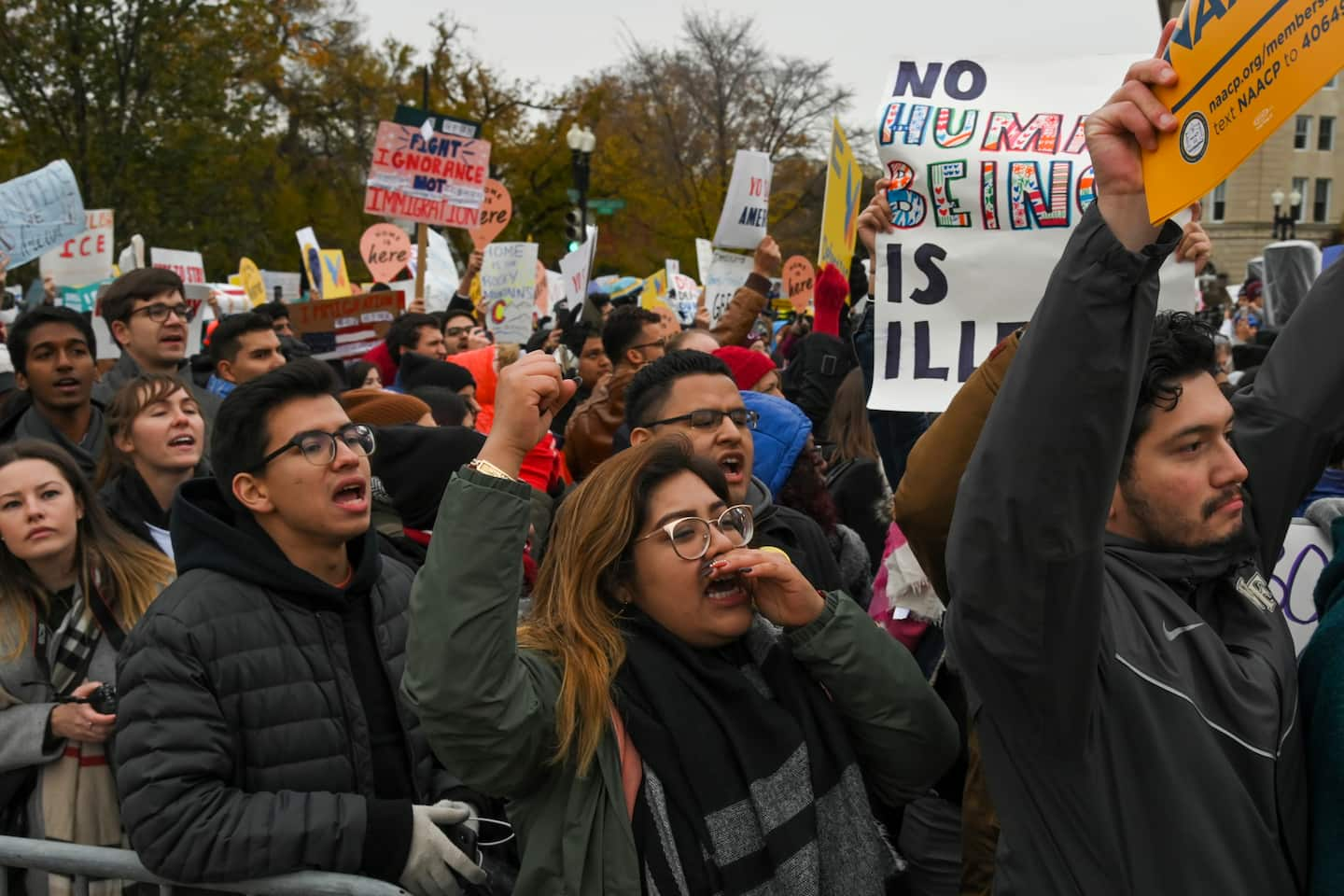Biden has promised to protect ‘dreamers,’ but DACA court challenges loom

President Trump has called the program an “illegal amnesty” and has tried to end it, largely because Obama enacted it without congressional approval. Courts blocked Trump from stifling DACA, but the legal battles surrounding the program are far from over.
Biden called Trump’s attempt to wipe out DACA “cruel and counterproductive,” and says he also will push for citizenship for dreamers and their families — which is what immigrants say they want.
“Dreamers are Americans,” Biden tweeted in June, amid the presidential campaign. “But Trump’s ripped away the hard-won protections of DACA recipients, throwing their lives into upheaval. It’s unacceptable, and on day one of my presidency I will protect them from deportation and send a bill to Congress.”
Although DACA recipients arrived as children, most are now in their 20s, with jobs as doctors, lawyers and software engineers, and many are seeking permanent legal status for themselves and their families.
“Let us be clear, protecting DACA is the floor, not the ceiling, for what Biden must do,” Greisa Martinez Rosas, a DACA recipient from Mexico and executive director for United We Dream, an advocacy group, said at a recent news conference.
But pushing a citizenship bill through what could be a Republican-held Senate will be challenging, and Biden’s opponents are using the federal courts to try to stop him from restoring DACA.
Attorneys general in Texas and several other states are urging a federal judge in the border city of Brownsville to declare DACA unlawful and clear the way for an “orderly wind down” during the next two years. They said the program infuses the job market with workers who compete with Americans for work and burdens states with health-care and education costs.
U.S. District Judge Andrew S. Hanen, a Republican appointee who has signaled in the past that DACA is probably unlawful, has scheduled a hearing for Dec. 22.
“Whatever its policy merits, DACA is clearly unlawful, as this Court has already held,” prosecutors wrote in an October court filing. “This is a textbook example of prohibited executive lawmaking.”
Advocates counter that DACA recipients pay millions of dollars in taxes, own homes and fill critical jobs, such as thousands of health-care workers who care for covid-19 patients.
The U.S. Supreme Court has not ruled on the legality of the program, but in June the court found that the Trump administration had not properly considered the impact of rescinding DACA in 2017, ordering the administration to start over. Some DACA advocates took the court’s 5-4 decision as a positive sign.
“They could have easily said it was unlawful. They didn’t,” said Thomas Saenz, president and general counsel of the Mexican American Legal Defense and Educational Fund, a Los Angeles-based nonprofit organization that is defending DACA in the Texas lawsuit.
The Supreme Court ordered the Department of Homeland Security, which runs the program, to decide what to do with DACA. Acting DHS secretary Chad Wolf is still thinking about it, according to court flings last month. He cut the work permits’ validity in half, to one year, in July, and the agency is only renewing applications. New applications are not allowed.
A federal judge in New York ruled in November that Wolf’s DACA move may not have been legitimate because his ascension to the top DHS job was unlawful. DHS officials have disputed the ruling, and arguments are ongoing.
Others say Hanen, in Texas, could decide that DACA has run out of time. In an August 2018 ruling denying a preliminary injunction in the case, largely because so many people already had work permits, Hanen said Congress — not the executive or judicial branches — “should consider saving” the program.
“If the nation truly wants to have a DACA program, it is up to Congress to say so,” he wrote.






